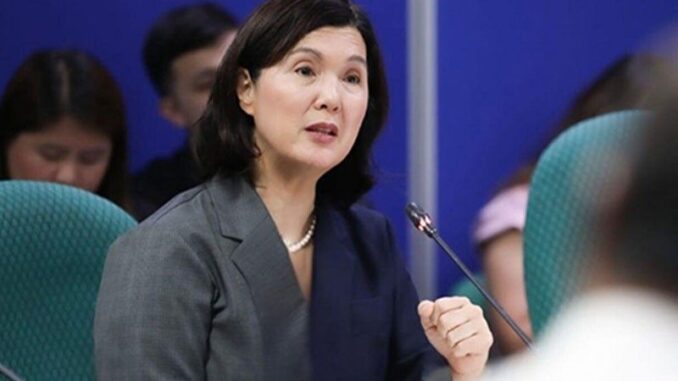
MANILA, Philippines — The Senate Blue Ribbon committee exemplified its commitment to transparency, accountability and good governance in 2024, according to its chairperson Sen. Pia Cayetano.
In a statement, Cayetano, the panel’s first-ever female chairperson, said the panel capped a productive 2024 by tackling pressing national issues, including health reforms, national security, identity theft and sports integrity.
The Senate Blue Ribbon committee, formally known as the committee on accountability of public officers and investigations, is tasked with probing any alleged wrongdoing, lapses, inaction or negligence by government officials and employees across agencies and departments.
Throughout 2024, the committee conducted significant hearings and took swift actions that uncovered irregularities and pushed for important reforms that safeguard public interest.
Fake birth certificates
In March and August, the committee uncovered systemic fraud involving fake birth certificates, passports and other government-issued documents illegally used by foreign nationals, which could have impact on national security, as some senators described.
One hearing revealed that 54 out of 1,501 questionable birth certificates issued in Sta. Cruz, Davao del Sur, belonged to individuals with foreign parents, with suspiciously identical handwriting, pointing to organized fraud.
The committee also found similar issues in other cities, with Manila, Caloocan, Quezon City, Pasay and Pasig topping the list of areas with fake documents.
Cayetano called this scheme a “sale of Philippine citizenship,” warning that it undermines the country’s sovereignty and raises serious national security concerns.
She also highlighted how fraudulent documents, particularly fake passports, harm overseas Filipino workers, whose livelihoods depend on these critical documents.
Tobacco control
In February and April, the committee investigated the Philippine delegation to the 10th World Health Organization Framework Convention on Tobacco Control Conference of Parties (COP10), which included tobacco advocates who failed to defend the country’s health interests.
Cayetano said the failure earned the Philippines its fifth “Dirty Ashtray Award,” a recognition given to countries perceived as favoring the tobacco industry over public health.
She criticized the 34-member delegation for delaying key provisions requiring the testing and disclosure of tobacco product contents.
The hearings also underscored the importance of ensuring that top officials, such as the secretary of health, are present in major public health events like COP10 to strongly advocate for the country’s interests.
Meanwhile, the committee also took action to uphold sports integrity by addressing the Philippine Sports Commission’s non-compliance with the World Anti-Doping Agency Code, which jeopardized Filipino athletes’ eligibility to compete in international events, including the Olympics.


Be the first to comment